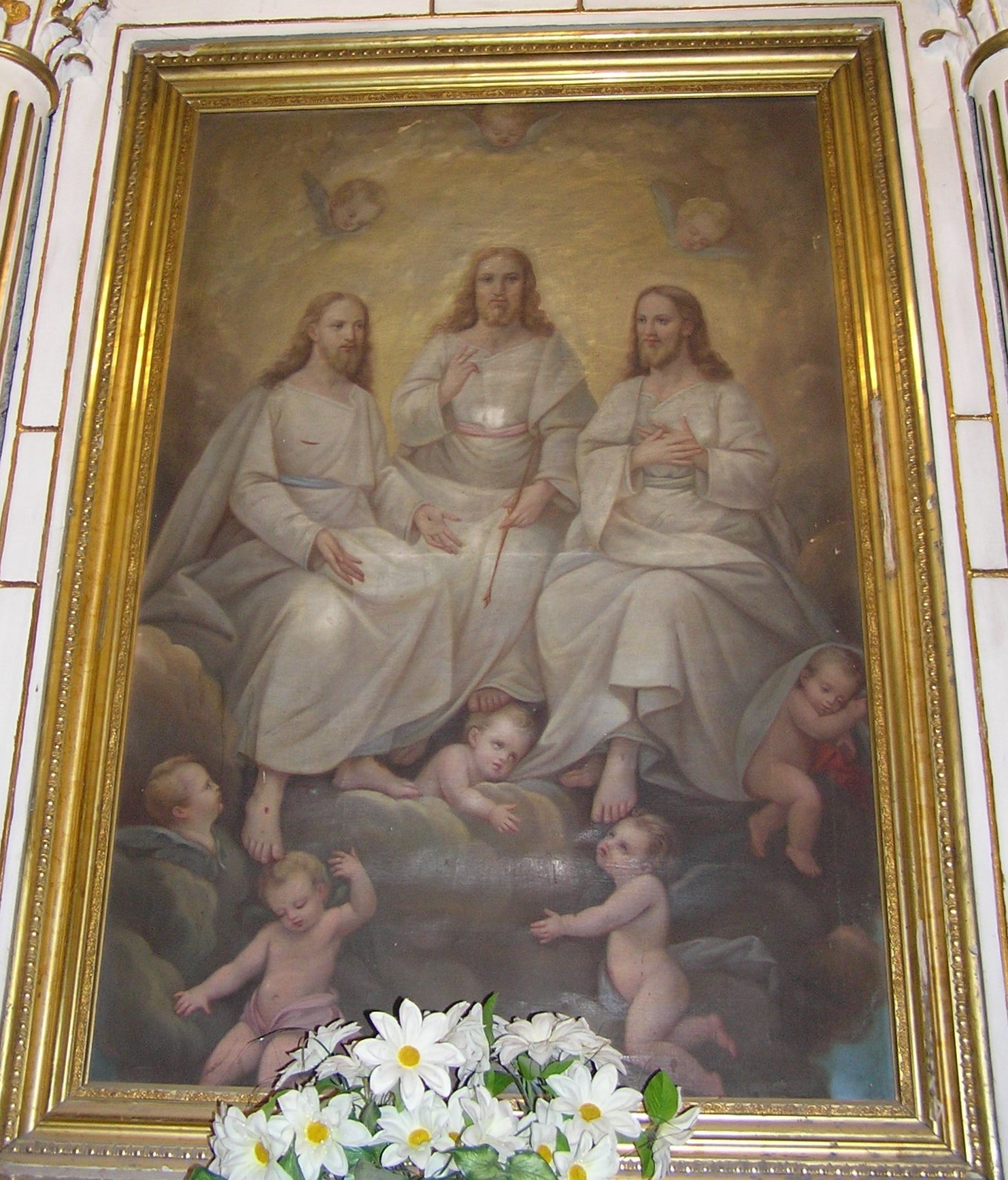[In honor of the Ascension this week, I dusted off an article I wrote years ago for Our Sunday Visitor. Enjoy!]
The first time I ever met my spiritual director was on the Feast of the Ascension. He surprised me by saying this was his favorite feast day – even more than Christmas or Easter. I tried to hide my shock and bewilderment. What could be so special about this day? It hardly received the same attention as the birth of Christ or the resurrection. Why the favored status?
Back then, my spiritual director knew what St. John Paul II repeatedly told us: That the spiritual journey is like a great pilgrimage to the house of the Father. The gospel of John says it so well: “Jesus- fully aware that he had come from God and was going to God, the Father who had handed everything over to him – rose from the meal and took off his cloak” (Jn 13:3-4). Jesus placed a towel around himself and washed his disciples’ feet. John, the master of symbols, is presenting us with a marvelous image: Jesus willingly divests himself of his divinity (the cloak) to take on our humanity (the towel) and wash us in his Spirit.
Why would Jesus do this? Because he knew where he had come from. He knew that God the Father was his origin. He knew that no matter what happened – whether he experienced human success or failure – he would return to the Father. The beginning and ending of his journey were assured; it was only the middle that remained unscripted.
That’s where we find ourselves – in the middle. We’re scripting the middle part of our journey through our everyday choices. But sometimes the middle is rather muddled. With bills to pay, tragedies to cope with, and romantic loves to pursue, we sometimes lose sight of God as our origin and end. We get caught up in earning a living, clothing and feeding children, saving for college, budgeting for vacation, meeting deadlines, and contributing to an IRA. Our value is constantly judged according to an economic measuring rod: Are we “pulling our own weight” rather than relying on others or the government for assistance? Are we making a “tangible contribution to society” that can be measured in a concrete way?
This economic way of defining ourselves easily spills into our relationship with God. We project onto God the human standard of the good father as the good provider. We think that since God is the perfect father, he must be the perfect economic provider. We ask for our “daily bread” and feel secure when it is provided. Without even realizing it, we relate to God in economic terms.
But we’re not the only ones. The prodigal son did the same thing. When the prodigal wanted to establish his independence, what did he request? His father’s blessing? Letters of introduction? A monthly Skype session? No, he commanded his portion of the inheritance and struck out on his own. He defined his relationship to his father in material terms.
This is especially clear when the prodigal “comes to his senses.” He returned to his father’s house thinking he has lost his “right” to the material provision given to a son. He merely hoped for a roof over his head and food in his stomach as a hired hand. He was willing to ask forgiveness, but couldn’t see how his sonship could ever be regained. He was stuck in economic categories.
How sorely mistaken was the prodigal! The father’s overwhelming joy at his son’s return revealed the essence of fatherhood: Nothing could destroy the father’s burden of love and delight for his son. Nothing could diminish his cherished feelings. All that mattered was that father and son were together again; communion is restored. St. John Paul II described the father’s response in this way: “The father of the prodigal son is faithful to his fatherhood, faithful to the love that he had always lavished on his son.” (The Mercy of God, No. 6)
To make sure we don’t miss the true meaning of fatherhood, the lesson is repeated with the elder son. This son, too, looked to his father for economic rewards: “Look,” said the elder son to his father, “I’ve slaved for you all these years and you’ve never even given me so much as a kid goat to celebrate with my friends.” The patient father replied: “My son you are with me always and everything I have is yours.”
‘You are with me always…” The essence of fatherhood is first and foremost presence, not provision. The father valued their communion of person above everything else; he defined his fatherhood through an emotional and spiritual bond that couldn’t be ruptured by time, distance, circumstance, or material need. True security – emotional and spiritual security – is this firm conviction that the Father delights in us and remains near us always. Jesus said it so simply: “The Father and I are one.” It is the deep assurance that we are bonded together unconditionally.
In a culture that promises economic rewards for everything from credit card purchases to filling your gas tank, we need to hear this message of simple presence over and over again. It is the unrelenting message of the Old Testament, of the Incarnation, cross, and resurrection. It is also the essence of a little-know apparition of God the Father to Sr. Eugenie Ravasio in 1932 near Grenoble, France.
On the feast of Corpus Christi in that year, the Father appeared to Sr. Eugenie, not as an old man, but resembling Jesus in his thirties. The Father placed his crown and glory at his feet, took the world in his left hand and held it close to his heart. “I have come to banish the excessive fear that my creatures have of me,” the Father said to her, “and to make them know that my joy is to be known and loved by my children.”
Throughout Sr. Eugenie’s two small notebooks, a central theme resounds: From all eternity, the Father’s one desire has been to remain close to mankind. That is why he ordained the construction of the tabernacle, the giving of the Law, and the sending of his Son. Through the cross, the Father says, he descended to be among us, and it is only by the cross that we can ascend to God. Through the Eucharist, he resides among us, like a father in the midst of his family. And through the Holy Spirit, he abides in the interior of each person in a state of grace, living as a true father who loves, protects, and upholds his child.
Repeatedly the Father tells Sr. Eugenie that he wants to be known, loved, and honored as the true father that he is. “Do not believe that I am this terrible old man that men represent in their images and books,” he says. “No! No! I am neither younger nor older than my Son or my Holy Spirit. That’s why I would like all, from the child to the elderly, to call me by the intimate name of father and friend.”
To encourage this true image of God the Father, a special feast day is requested under the title of the Father of All Humanity. While many feasts honor the Son and the Holy Spirit, none honor the fatherhood of God in a particular way. To remedy this, the Father asks for this annual feast on the first Sunday of August or that the seventh day of every month be consecrated to his fatherhood. In this way, a living knowledge of God as Father can permeate families, hospitals, workplaces, factories, schools, and seminaries. His joy to be near us can be proclaimed and celebrated.
While this particular feast has yet to be instituted, it strikes me that the Feast of the Ascension comes close: Jesus ascends to the right hand of the Father. The Ascension is the perfect opportunity to focus our attention not only on Jesus’ bodily ascension into heaven but on his return to the Father. It re-centers us on God as our origin and end, and reminds us that the middle part of our journey is just that – the middle part.
No wonder my spiritual director treasures this feast day. In his priestly and fatherly heart, he is already near the Father. He draws his security not from the Father’s material provision, but from the emotional and spiritual presence that is the essence of fatherhood. He isn’t in a hurry to get anywhere because he’s already there – in the Father’s family, in the Father’s house, in the Father’s heart. Perhaps one day I will learn to dwell more fully in the Father’s heart and then the Ascension will become my favorite feast as well.
This week, I invite you to consider your own impression of God’s fatherhood: Do you think of God’s fatherhood first and foremost as one of provision or one of unconditional spiritual and emotional presence? Do you think of the Father as much older than Jesus or can you picture him as young, virile, and timeless? Perhaps you (and your family) could consider honoring the Fatherhood of God by dedicating the 7th of every month to His fatherhood in a special way. As you ponder these things, remember – because of God’s Fatherhood – you are a gift!
© Katrina J. Zeno, MTS




